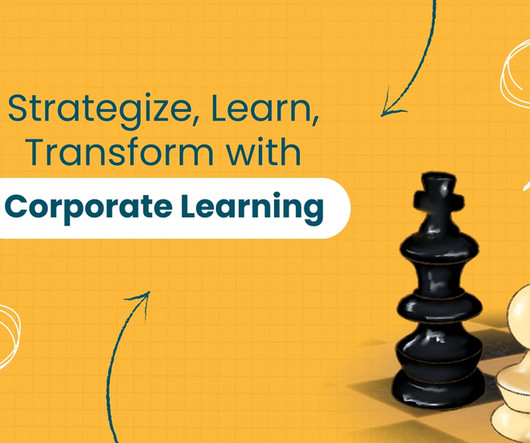Active and Passive Learning in Organizations
The Performance Improvement Blog
APRIL 13, 2012
In this role, employees (as individuals, teams, or the organization as a whole) receive feedback about what they are doing and how they are doing it and, through individual and collective reflection, learn how to make themselves, their teams, and the enterprise more effective. Large-scale events (whole organization system change).


































Let's personalize your content